Bocconi People
A New University in the Service of Progress, 1902–1915
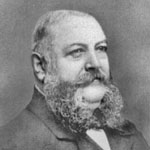
Ferdinando Bocconi (1836–1908)
A great entrepreneur, Ferdinando Bocconi embodies the figure of the self-made man. Having started out as a street peddler of fabrics in late 19th century Milan, with his brother he founded the prestigious “Alle Città d’Italia” stores, the first in the country to offer ready-made clothing and fashion items following the model of the large French and English establishments. At the turn of the century, in memory of his son who had gone missing in East Africa, Ferdinando decided to create a new educational institution in the field of economics bearing his name: Università Commerciale “Luigi Bocconi”.
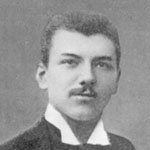
Luigi Bocconi (1869–1896)
Ferdinando’s first son, Luigi Bocconi, chose not to work in the family business. In 1896, his desire for independence and adventure led him to join the Italian troops leaving for Ethiopia as a correspondent for the newspaper “La Riforma”. After the battle of Adwa he was reported missing in action. The institute his father created in order to raise business studies to university level is named after him.
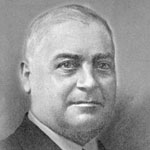
Ettore Bocconi (1871–1932)
On the death of his father, Ettore Bocconi stepped in to manage both the family business and the University. He served as president of Bocconi from 1915 to 1932. In 1917 he ceded ownership of “Alle Città d’Italia” department stores, which would become “La Rinascente”, still a central showcase for Milanese fashion and design today.

Ferdinando Bocconi jr (1873–1913)
Ferdinando Bocconi, Jr. was the younger brother of Luigi and Ettore. He died at a young age in 1913, leaving the University the sum of one million lire in order to help it continue its academic pursuits and fund scholarships for gifted youth.

Javotte Bocconi Manca di Villahermosa (1879–1965)
Lady Javotte was the heir of a noble Sardinian family and the wife of Ettore Bocconi. After her husband’s death, she carried on the family’s work in support of the University, of which she was president until 1957. In 1951, she established the "Associazione Amici della Bocconi" which, now under the name “Istituto Javotte Bocconi Manca di Villahermosa – Associazione Amici della Bocconi”, continues to play a fundamental role in the University’s governance.
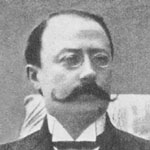
Leopoldo Sabbatini (1861–1914)
Secretary of the Milan Chamber of Commerce from 1888 and founder of the Union of Italian Chambers of Commerce, Leopoldo Sabbatini was keenly interested in the problems of education since his university years, and he was involved in the founding of the new university through his association with Ferdinando Bocconi. He was the first President-Rector and, more importantly, the architect of its academic organization. Bocconi owes him its modern and innovative character, an enduring quality of the institution.

Girolamo Palazzina (1880–1970)
Girolamo Palazzina was administrative director of Bocconi and protagonist of university life for over 60 years. He developed a strong personal link with both faculty and students. His impassioned activity is reflected in the intense correspondence that he kept up over the years with students, professors and numerous personalities, including the philosopher Giovanni Gentile.
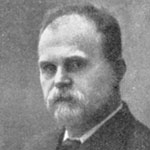
Luigi Majno (1852–1915)
Luigi Majno was a lawyer, politician, and leading figure of the cultural life of Milan. He replaced Sabbatini in the University’s directorship in 1914 and, an active philanthropist, combined academic work with support for numerous institutions dedicated to education and social protection and advancement.

Gaetano Mosca (1858–1941)
A historian and political scientist from Sicily and lecturer in law and in the history of political doctrines, Gaetano Mosca is considered, along with Max Weber, Vilfredo Pareto, and Robert Michels, a leading representative of the so-called elitist school.
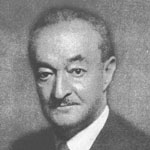
Francesco Coletti (1866–1940)
Francesco Coletti was a pupil of Achille Loria and a scholar of statistics and demography. He came to Bocconi in 1909 as a lecturer in agrarian economics and was the first director of the social statistics laboratory, the future Institute of Economics, later headed by Luigi Einaudi. He was also part of important government inquiry commissions, including the commission in charge of analyzing the economic situation in southern Italy in 1906.

Luigi Einaudi (1874–1961)
An economist and public servant for over 20 years, from 1904 to 1926, Luigi Einaudi was the leading light of Bocconi as professor of finance and director of the Institute of Economics, created in 1921. He was Senator from 1918 to 1944. In 1945 he was the Governor of the Bank of Italy, in 1947 Minister for the Budget, and, from 1948 to 1955, second President of the Italian Republic, of which he is considered one of the founding fathers.
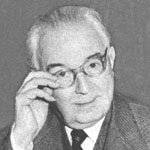
Francesco Carnelutti (1879–1965)
A jurist and lawyer as well as lecturer in industrial law at Bocconi, Francesco Carnelutti also taught at Catania, Padua, Milan, and La Sapienza in Rome and authored important works on the theory of law and legal practice.

Ulisse Gobbi (1859–1940)
An economist and mathematician, Ulisse Gobbi was one of the founders of the economic theory of insurance. His studies on cooperation contributed to the development of the discipline of economics and expressed the same civil and social standards underlying the creation and founding of Bocconi, where he was Rector from 1930 to 1934.
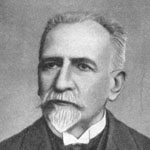
Pietro Bonfante (1864–1932)
A historian of Roman law, Pietro Bonfante is considered one of the preeminent jurists of his era. A lecturer in the history of commerce at several universities, including Bocconi (where he was Rector from 1915 to 1917), he wrote numerous publications, mainly for educational and informational purposes.
Research and Freedom of Thought, 1916–1944
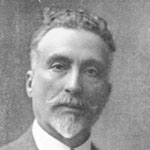
Angelo Sraffa (1865–1937)
Professor of commercial law at several Italian universities and founder of the journal “Rivista di diritto commerciale” in 1903, Angelo Sraffa began lecturing at Bocconi in 1904. Rector from 1917 to 1926, a crucial time for the University, he promoted a series of educational and organizational reforms and founded its first research institutes. He also brought authoritative scholars to Milan, around whom soon sprang a generation of talented young economists and jurists.
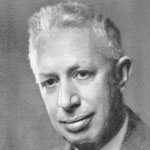
Giorgio Mortara (1885–1967)
Giorgio Mortara was a law graduate and scholar of applied statistical economics, a discipline he mastered in 1907–1908 in Berlin, under the guidance of Ladislaus von Bortkiewicz. Mortara brought to Bocconi the editorship of the “Giornale degli economisti”, an authoritative publication hosting Italy’s most advanced theoretical considerations on economics, still published today by the University.

Attilio Cabiati (1872–1950)
A law graduate, economist and journalist, Cabiati collaborated with several newspapers and magazines, as well as establishing and directing the "Rivista Bancaria". He was a professor at the universities of Turin, Genoa, Milan and Bologna, teaching Economics and monetary policy at Bocconi until 1926, when his opposition to the fascist regime forced him to abandon teaching.

Raffaele Mattioli (1875–1973)
Economist, banker, and intellectual, Raffaele Mattioli was an assistant at Bocconi’s Institute of Political Economy in the early 1920s before going to work at Banca Commerciale Italiana, where he would become managing director. A passionate patron of culture, over the years he funded reviews, associations, authors, and publishing houses, personally taking up the directorship of the Italian Institute of Historical Studies, as well as editing important series of books.

Carlo Rosselli (1899–1937)
A young assistant of the Institute of Political Economy headed by Luigi Einaudi in the period 1923–1925, Carlo Rosselli was among the founders of Justice and Freedom, an underground democratic movement born in 1929 in France. A staunch antifascist, he joined the Republicans in the Spanish Civil War. After becoming a symbol of the opposition, he was assassinated along with his brother Nello by henchmen of the regime in 1937.
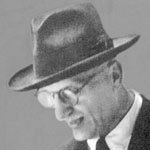
Gino Zappa (1879–1960)
After his studies at the Ca’ Foscari University of Venice, in 1929 Gino Zappa became the first Full Professor at Bocconi. Passionately devoted to teaching and research, he provided extraordinary impetus for the emergence of modern business economics in Italy, freeing it from the constraints of the traditional accounting-based approach and providing it with new scientific foundations.

Ugo Caprara (1894–1990)
As early as the academic year 1921–1922, Ugo Caprara was Gino Zappa’s assistant in the teaching of commercial studies. He worked for many years at Bocconi University and at the University of Turin. He authored several books in which he investigated the market and banking economy within a comprehensive doctrinal framework.
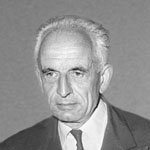
Pasquale Saraceno (1903–1991)
A Bocconi graduate, Pasquale Saraceno became assistant to Gino Zappa in 1924 and taught courses in accounting and banking until 1933. He took part as a consultant in several government commissions, including that for the creation of the Industrial Reconstruction Institute—where he served as director until 1968—and those for the revival and reconstruction of the Italian economy in the immediate postwar period.
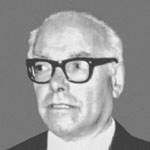
Pietro Onida (1902–1982)
Professor of general and applied accounting at the Ca' Foscari University of Venice, Bocconi and Cattolica in Milan and at the Universities of Trieste, Turin and Rome, in 1961 Pietro Onida received the National Certifi cate for Meritorious Service to Education, Culture and the Arts. Member of the Superior Council of Public Instruction from 1962 to 1970, he pursued his professional activity alongside academic work, which was always central to his career.

Paolo Baffi (1911–1989)
Paolo Baffi was the assistant to Professor Giorgio Mortara at Bocconi but resigned after Mortara was forced to leave teaching under the 1938 racial laws. Baffi joined the Bank of Italy at a very young age and was its governor during the crucial period between 1975 and 1979, marked by the energy crisis and difficulties for the lira, problems that he faced with the deep sense of moral dignity for which he is remembered today.
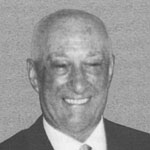
Guglielmo Tagliacarne (1893–1979)
Guglielmo Tagliacarne graduated from Bocconi, where he taught demography and statistics, and was the Secretary of the Union of Chambers of Commerce (Unioncamere) from 1947 to 1968. He founded the Italian association of marketing in 1954, introducing the modern conception of market analysis to Italy.
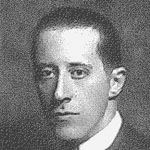
Mario Hazon (1885–1956)
Mario Hazon was a lecturer of English at Bocconi, a co-founder of the University’s Institute of Linguistics, a correspondent of Ezra Pound, and a coordinator of the cultural exchanges between Italy and England sponsored by the Serena Foundation; moreover, he is the author of one of the most important English dictionaries published in Italy.
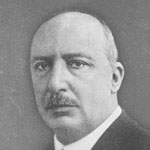
Ferruccio Bolchini (1875–1931)
A lawyer and a professor at various universities, including those of Pavia and Milan, Ferruccio Bolchini taught commercial law and civil procedure at Bocconi, where he succeeded Angelo Sraffa as Rector (1926–1930).
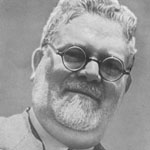
Giovanni Gentile (1875–1944)
The leading representative, with Benedetto Croce, of Italian philosophical idealism, lecturer in theoretical philosophy at several universities, and Minister for Education from 1922 to 1924, Giovanni Gentile was Vice President of Bocconi from 1930 to 1944. During that period, he made numerous attempts to ensure the University’s independence. In 1944, he was assassinated for his proximity to the fascist regime.
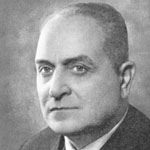
Gustavo Del Vecchio (1883–1972)
An expert on monetary theory and the first director of the Ettore Bocconi Institute of Economics, Gustavo Del Vecchio was Rector of the University from 1934 to 1938. Forced to leave his job due to the racial laws, he lived in hiding before emigrating to Switzerland in 1943. After the war, he taught in Rome and was called by Alcide De Gasperi to work at the Ministry of the Treasury in 1947–1948; moreover, he was the International Monetary Fund Governor for Italy.
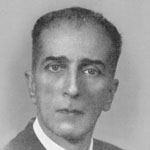
Paolo Greco (1889–1974)
A jurist and liberal intellectual, Paolo Greco was the Rector of Bocconi after Gustavo Del Vecchio; he sought to preserve the University’s independence from fascist interference. After September 8, 1943, he became actively involved in the resistance, serving as President of the National Liberation Committee of Piedmont.
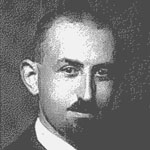
Mario Rotondi (1900–1984)
Professor of commercial, private, and industrial law at the universities of Bari and Pavia, as well as at Cattolica and Bocconi, Mario Rotondi was an antifascist academic and a scholar of comparative law. His ideas and activities led to the formation of the Angelo Sraffa Institute of Commercial, Industrial and Labor Law in Milan.

Remo Franceschelli (1910–1992)
Graduating from Pavia under the guidance of Mario Rotondi, Remo Franceschelli was a scholar of civil, commercial, and industrial law. He began his academic career at Bocconi as a lecturer in commercial law, subsequently becoming professor at the universities of Pavia, Perugia, Rome, and Milan. He was a partisan and the founder of the journal “Rivista di diritto industrial”. Moreover, he was awarded the Gold Medal for Meritorious Service to Education, Culture and the Arts in 1974.
A Long Period of Reconstruction, Revolt and Reform, 1945–2002
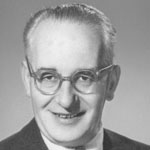
Giovanni Demaria (1899–1998)
A professor at Bocconi from 1932 on, Giovanni Demaria was director of the Ettore Bocconi Institute of Economics and editor of “Giornale degli Economisti” after Gustavo Del Vecchio’s dismissal in 1938. Head of the Constituent Assembly’s Economics Commission, he was Bocconi’s Rector immediately after the war. With him, a new phase of the University’s international openness began, thanks partly to the inception of the degree program in foreign languages and literature.
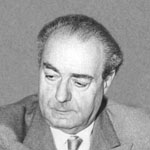
Armando Sapori (1892–1976)
After graduating in law in Florence, in 1934 Armando Sapori began a long career teaching economic history at Bocconi. He was Rector from 1952 to 1967, the longest term in the University’s history. From 1948 to 1953, he was also a Senator of the Italian Republic.
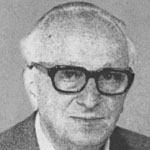
Ferdinando Di Fenizio (1906–1974)
A professor at several universities in Italy, Ferdinando Di Fenizio also contributed to the foundation of important newspapers, including “24 Ore”, which later became “Il Sole 24 Ore”, the largest Italian business daily. Moreover, he played an active role in national economic planning after World War II. His academic work aimed to disseminate the thought of British economist John Maynard Keynes throughout Italy.
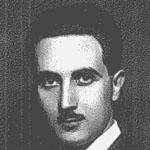
Valentino Dominedò (1905–1985)
In the ’30s he was among the first scholars in Italy to deal with econometrics and international capital movements. His academic career was spent at the universities of Bari, Parma, Turin, Genoa, Milan and Rome. In particular, at Bocconi Dominedò was for many years professor of Economics and Financial mathematics, and his work provided numerous contributions to the development of value theory.
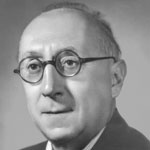
Antonio Banfi (1886–1957)
Antonio Banfi was a philosopher and the founder of the socalled Milan school. Active in politics as well as in many fi elds of culture, he was among the signers of the Manifesto of Anti-Fascist Intellectuals, drafted by Benedetto Croce in 1925. A partisan, after World War II he took part in national political life, becoming a senator.
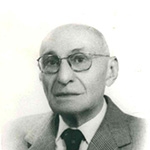
Alberto Campolongo (1912-1991)
He was the assistant to Giorgio Mortara, and — just like Paolo Baffi — he resigned in protest following the racial laws. An economist and reviewer for the Giornale degli Economisti, he was also a translator: among other works, his 1947 translation of the first Italian edition of Keynes’s The General Theory of Employment, Interest and Money is particularly significant. After the war, he held senior positions at the Bank of Italy, including serving as Auditor of the General Meeting of Shareholders. Starting in the 1950s, he also taught in both Pavia and Milan.
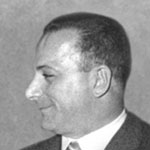
Remo Cantoni (1914–1978)
Remo Cantoni was a student of Antonio Banfi and became a pioneer of cultural anthropology in Italy. A lecturer of moral philosophy at numerous universities, he was also the founder of leading journals such as “Studi Culturali” and “Il Pensiero Critico”.
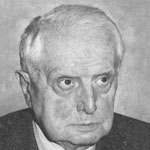
Carlo Bo (1911–2001)
Considered one of the 20th century’s greatest scholars of foreign languages and cultures, Carlo Bo was a pupil of the poet Camillo Sbarbaro and a regular contributor to “Il Frontespizio”, a literary magazine published in Florence. A literary critic, poet, journalist, and academic, in 1951 Bo founded the School for Interpreters and Translators in Milan and, in 1968, he founded the University Institute of Modern Languages (IULM). The University of Urbino, where he was Rector for more than 50 years, from 1947 to 2001, is named after him.
Libero Lenti (1906–1993)
A university lecturer in Milan and Pavia, partisan, bibliophile, and journalist, the extraordinary figure of Libero Lenti is remember by Giovanni Spadolini as an “economist...who never closed himself off inside economics” possessing a strong “interdisciplinary conscience” and a sober and straightforward style. A member of the Accademia dei Lincei, he headed the Banca Popolare di Milano from 1956 to 1960.

Francesco Brambilla (1913–1996)
A member of important international associations, including the International Statistical Institute, the Econometric Society, and the American Statistical Association, Francesco Brambilla was professor of statistics at Bocconi starting in 1946. He also founded and directed the University’s Center for Applied Research.

Furio Cicogna (1891–1975)
A Bocconi graduate (class of 1912), Furio Cicogna was an executive in the textile industry. He worked as a senior executive at Châtillon, a well-known rayon manufacturing industry, and was President of Confindustria from 1961 to 1966. Cicogna also maintained strong ties over the years with the University, where he was President from 1957 to 1975.

Giordano Dell’Amore (1902–1981)
Giordano Dell’Amore was a longtime member of the Bocconi faculty, becoming Rector of the University from 1967 to 1973. In 1955, he helped establish the Scuola di Perfezionamento, which later became the SDA Bocconi School of Management. Chairman of the Cassa di Risparmio delle Provincie Lombarde and President of the World Savings Banks Institute, in 1967 he founded Finafrica (today Fondazione Giordano Dell’Amore), dedicated to the development and promotion of savings bank projects in African countries.
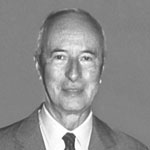
Giorgio Pivato (1911–1997)
Lecturer in trade and industry studies from 1959 to 1982 and director of the Institute of Economics of Industrial and Commercial Companies, Giorgio Pivato was part of ministerial commissions for the study of new measures concerning the stock exchange.

Carlo Masini (1914–1995)
Lecturer in general accounting starting in 1960 and in business administration from 1963 to 1990, Carlo Masini was chairman of the Ca’ Granda hospital in Milan from 1959 to 1966, President of the Italian Academy of Accounting from 1970 to 1983, and director of the Gino Zappa Institute of Business Administration from 1981 to 1990.

Ariberto Mignoli (1920–2003)
A “humanist lawyer” and recognized jurist, Ariberto Mignoli came to Bocconi in 1956 as a lecturer. Professor of commercial law starting in 1962 and director of the Angelo Sraffa Institute of Comparative Law, he was the architect of several reforms in company legislation.

Innocenzo Gasparini (1920–1985)
After graduating from Bocconi with Giovanni Demaria as his academic supervisor, Innocenzo Gasparini continued his work as a researcher at Bocconi, focusing on investigating mutual connections between history and economics. In the 1950s he began teaching at Sassari and Padua and in 1965 he came to Bocconi. Rector from 1975 to 1984, he modernized the University according to the model of Anglo-American schools of economics and management.
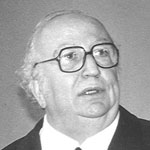
Giovanni Spadolini (1925–1994)
Historian, journalist, politician, and man of culture, Giovanni Spadolini was one of the most important political leaders of the First Italian Republic. A professor of contemporary history at the University of Florence starting in 1950, editor of the newspapers “Il Resto del Carlino” (1955–1968) and “Il Corriere della Sera” (1968–1972), in 1976 he became President of Bocconi and remained in office until his death in 1994. Secretary of the Republican Party, he often played a key role in Italian political life, serving as minister of several departments and as Prime Minister (1981–1982) and President of the Senate (1987–1994).

Aldo De Maddalena (1920–2009)
An economic historian and passionate scholar of music history, Aldo De Maddalena graduated from Bocconi in 1944. He became a professor here in 1957 and held the role of Director of the Institute of economic History. De Maddalena was a close friend of Fernand Braudel, one of the leading historians of the École des Annales and, in addition to teaching, he served for a long time as vice president of the “F. Datini” International Institute of Economic History and as president of both the Italian Association of Economic Historians and the World Association of Economic Historians.
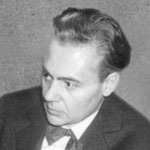
Gianguido Scalfi (1924–1995)
A professor and jurist, Gianguido Scalfi was Vice Rector and then Rector at Bocconi during the difficult years of energetic student activism. Active in numerous cultural associations as a board member or chairperson, he also directed several journals and book series in the legal and insurance fields.
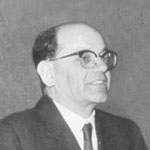
Eugenio Levi (1913–1969)
In 1935, Eugenio Levi graduated in economics from Bocconi and completed a second degree in mathematics a few years later. He was professor of financial and applied mathematics in Turin, Catania, Parma and at Bocconi, where he directed the Institute of General Mathematics. He published numerous articles on actuarial and decision-making sciences.
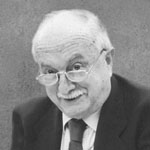
Sergio Vaccà (1926–2007)
After studying under Pasquale Saraceno, Sergio Vaccà specialized in industrial economics, lecturing initially at Genoa and then at Bocconi, where, in 1957, he became the first director of the Centre for Research on Energy and Environmental Economics and Policy (IEFE). In the late 1980s he also became Vice Rector while heading the journals “Economia delle fonti di energia” and “Economia e politica industriali” for many years.
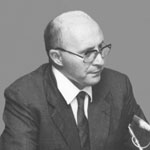
Cesare Pedrazzi (1927–2005)
A jurist and an expert in criminal law, Cesare Pedrazzi was active as an academic at universities in Urbino, Trieste, Pavia, and Milan, both at the University of Milan and at Bocconi, where he was a long-serving professor of commercial criminal law.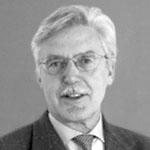
Claudio Dematté (1942–2004)
Professor of business economics at Bocconi, Claudio Dematté was a figure of great importance in public administration, holding high positions in leading public institutions such as RAI (1993–1994) and the state railways (1998–2001). In 1971 he founded the SDA Bocconi School of Management, where he was initially Director and then President. His alternation of teaching and practical high-level management has always been reflected in SDA’s educational methods.

Tommaso Padoa-Schioppa (1940–2010)
Tommaso Padoa-Schioppa graduated from Bocconi with a degree in economics in 1966 and was elected Bocconian of the Year in 1989. During a long career as a public servant, he committed his efforts to leading Italian institutions, including the Bank of Italy, CONSOB, the European Commission, and the European Central Bank. Italian Minister of the Economy from 2006 to 2008, he is called the euro’s “founding father” and the “intellectual impetus” behind its birth because of the fundamental role he played in the creation of the single currency.